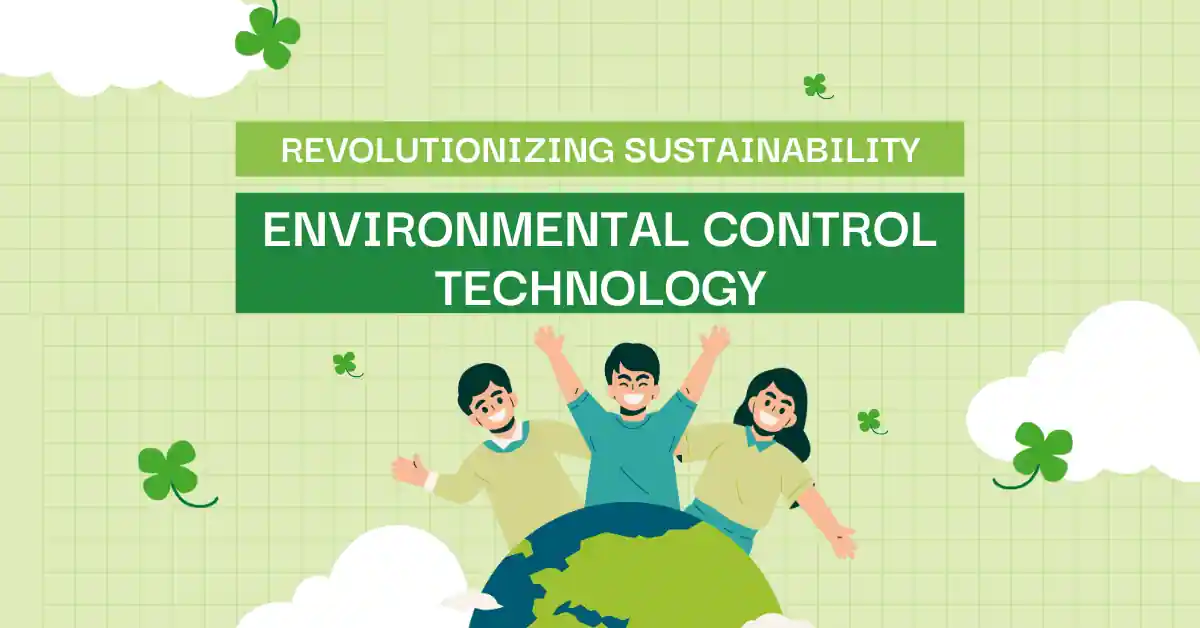In a world where sustainability is more critical than ever, environmental control technology has emerged as a game-changer. But what exactly does it mean, and why is it becoming a vital part of our daily lives? Let’s dive into this essential topic and explore how these innovations are shaping the future.
Table of Contents
ToggleWhat is Environmental Control Technology?
Environmental control technology refers to a set of systems and innovations designed to regulate and optimize environmental conditions. These technologies are used to monitor air quality, manage water resources, reduce waste, and improve energy efficiency, all while minimizing the impact on the environment.
The Growing Need for Sustainable Solutions
As the world grapples with climate change, resource depletion, and pollution, the need for sustainable technologies has never been greater. Environmental control technologies are critical in addressing these challenges, helping to reduce emissions, conserve natural resources, and create healthier living conditions for everyone.
Types of Environmental Control Technologies
There are various environmental control technologies designed to address specific challenges related to the environment. Let’s explore the major types of these technologies.
Air Quality Control Systems
Air quality control systems play a significant role in reducing air pollution and improving indoor air quality. Technologies such as air purifiers, filtration systems, and carbon capture units help filter harmful pollutants, providing cleaner, healthier air for both residential and commercial spaces.
Water Purification and Treatment Systems
Water purification technologies ensure access to clean, safe drinking water while minimizing wastewater pollution. These systems use a range of filtration, chemical treatment, and biological processes to remove contaminants from water, ensuring public health and protecting aquatic ecosystems.
Waste Management Technologies
Waste management is essential to keeping the environment clean. Technologies such as waste-to-energy systems, recycling technologies, and composting solutions help manage waste efficiently, reducing landfill use and promoting the recycling of valuable materials.
Energy Efficiency and Renewable Technologies
Energy-efficient systems and renewable technologies such as solar panels, wind turbines, and energy-saving appliances reduce dependency on fossil fuels, lower energy costs, and promote sustainability. These technologies not only cut down on greenhouse gas emissions but also contribute to long-term financial savings.
How Environmental Control Technology Works
Environmental control technology uses a combination of sensors, automation, and data analytics to optimize systems for sustainability. Let’s take a closer look at how these technologies function.
Sensors and Automation in Control Systems
Environmental control technologies rely on sensors to monitor real-time data like air quality, water levels, and temperature. These sensors then trigger automatic responses, such as adjusting indoor climate or optimizing energy use, helping to minimize waste and improve efficiency.
Data Analytics and Monitoring
Data analytics plays a vital role in environmental control systems. By analyzing data from sensors and other sources, businesses and organizations can gain valuable insights into resource consumption and environmental trends. This data helps optimize operations, making systems more efficient and responsive to changing conditions.
Integration with Smart Infrastructure
In today’s connected world, many environmental control technologies are integrated with smart infrastructure systems. From smart homes to smart cities, these technologies work together to manage everything from energy use to waste disposal, creating a seamless and sustainable environment.
Benefits of Environmental Control Technology
The use of environmental control technology offers numerous benefits, not just for the planet, but also for individuals and businesses. Let’s take a look at some of the key advantages.
Improved Health and Well-being
Cleaner air and water have direct health benefits, reducing the risk of respiratory diseases and other environmental health issues. By controlling pollutants, environmental control technologies help ensure that communities live in healthier conditions.
Reduction of Environmental Footprint
By optimizing resource usage, environmental control technologies significantly reduce our environmental footprint. Efficient energy use, water management, and waste reduction contribute to lowering greenhouse gas emissions, conserving natural resources, and minimizing overall environmental damage.
Cost Savings and Efficiency
While the initial costs of implementing these technologies can be high, the long-term financial benefits are significant. Energy-efficient systems and waste-reduction technologies lead to lower utility bills and operational costs. In the end, these technologies help businesses and homeowners save money while being more eco-friendly.
Applications of Environmental Control Technology
These technologies are being applied in various fields to improve sustainability and environmental management.
In Industrial Settings
Industries are major contributors to pollution, but with environmental control technologies, factories and manufacturing plants can reduce emissions, treat wastewater, and manage waste more effectively. These technologies help industries comply with environmental regulations and improve their environmental performance.
In Urban Planning and Smart Cities
As cities grow, managing resources like water, energy, and waste becomes more complex. Environmental control technologies help make urban areas more sustainable by optimizing resource use, reducing emissions, and enhancing the quality of life for urban dwellers through technologies such as smart grids, pollution sensors, and efficient public transportation.
In Agriculture
Agriculture is increasingly benefiting from environmental control technologies. Precision farming techniques, such as water-use optimization and soil management systems, help farmers reduce the environmental impact of their operations while increasing food production and ensuring long-term sustainability.
Challenges in Implementing Environmental Control Technology
Although the benefits are clear, implementing environmental control technology can be challenging.
High Initial Costs
The cost of installing environmental control technologies can be a barrier for both individuals and businesses. While these technologies offer long-term savings, the upfront investment can be prohibitive, especially for small businesses or homeowners.
Integration Issues with Existing Systems
Incorporating environmental control technologies into existing infrastructure can be difficult. Retrofitting older systems to accommodate new technologies often requires significant time and investment, which can be a roadblock for widespread adoption.
Lack of Awareness and Expertise
Another challenge is the lack of awareness or expertise in implementing environmental control technologies. Many businesses and homeowners are unaware of the technologies available or lack the knowledge to use them effectively, hindering widespread adoption.
Future of Environmental Control Technology
The future of environmental control technology looks promising as innovation continues to drive sustainability forward.
Innovations on the Horizon
Exciting advancements such as AI-powered environmental monitoring, autonomous waste management, and advanced renewable energy solutions will take environmental control technology to new heights, further promoting sustainability.
The Role of Artificial Intelligence and IoT
Artificial intelligence (AI) and the Internet of Things (IoT) will revolutionize environmental control technology by enabling real-time data collection, monitoring, and optimization. These technologies will allow for smarter, more efficient systems that can adapt to changing conditions and improve sustainability across industries.
Conclusion
Environmental control technology is at the forefront of the battle against climate change and environmental degradation. These systems offer solutions to clean up our air, water, and waste while promoting energy efficiency. While there are challenges in implementing these technologies, the long-term benefits for our planet and future generations make them indispensable.
FAQs
1. What is environmental control technology?
Environmental control technology refers to systems designed to monitor and regulate environmental factors like air quality, water purity, and waste management.
2. How do environmental control technologies work?
These technologies use sensors, data analytics, and automation to optimize systems, making them more efficient and reducing environmental impact.
3. What are some common types of environmental control technologies?
Some common types include air quality control systems, water purification systems, energy efficiency technologies, and waste management systems.
4. How does environmental control technology benefit the environment?
These technologies help reduce pollution, conserve resources, and lower greenhouse gas emissions, contributing to a healthier environment.
5. What challenges are associated with implementing these technologies?
Challenges include high upfront costs, integration with existing infrastructure, and a lack of awareness or expertise in using these technologies effectively.





